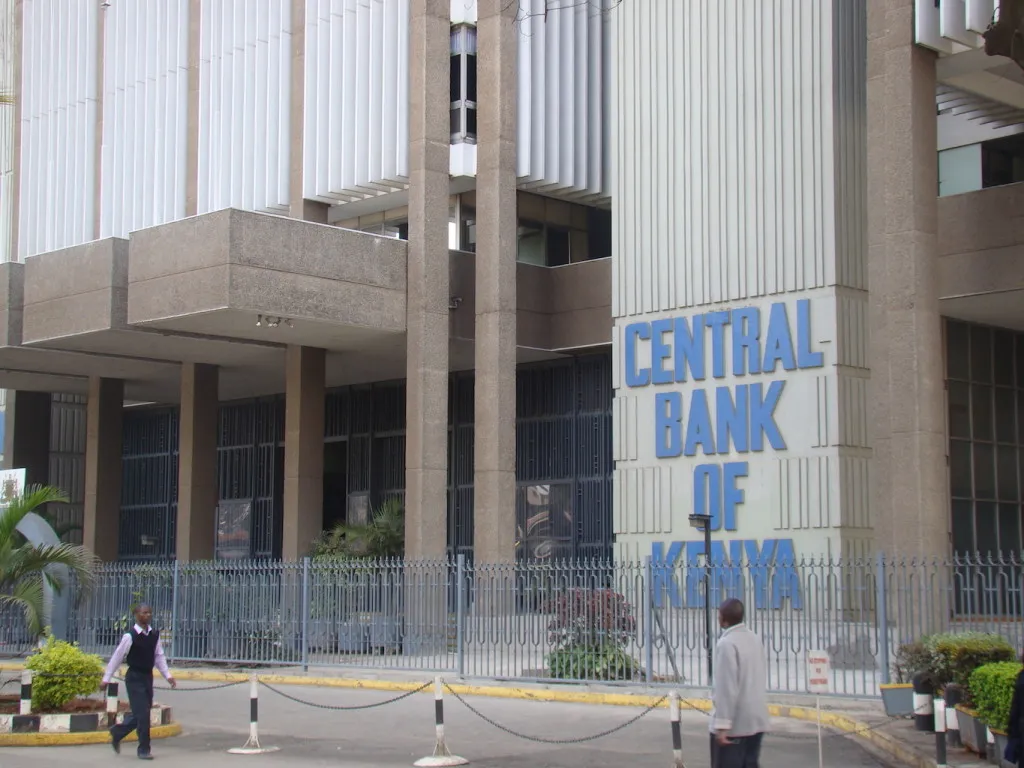Welcome to your comprehensive guide on investing basics in Kenya. This section aims to demystify the world of investments, providing clear answers to common questions for beginners looking to grow their money. For more in-depth financial insights, explore our resources at serrarigroup.com.
1. What is the best way to start investing in Kenya with little money?
Answer:
The best way to start investing in Kenya with limited funds is by leveraging low-entry, accessible investment platforms and products. Here are a few beginner-friendly options:
- Money Market Funds (MMFs): These are low-risk investments offered by asset management firms, with minimum deposits as low as KES 100–500. MMFs earn daily interest and allow easy withdrawal.
- Example: You can explore options like CIC Money Market Fund, Sanlam MMF, or NCBA MMF.
- Government Treasury Bills via M-Akiba or CBK: Treasury Bills (T-Bills) are short-term securities offered by the Central Bank of Kenya (CBK) with investment starting from KES 3,000 via M-Akiba, a mobile-based bond platform. These are virtually risk-free since they’re government-backed.
- SACCO Membership: Joining a Savings and Credit Cooperative (SACCO) allows you to save regularly and earn dividends. Some SACCOs also allow members to invest in land, development projects, or unit trusts. Learn more about SACCOs and their benefits here.
- Fractional Share Investing through Apps: Platforms like Hisa, Abacus (note: Abacus.com is expense reporting, Abacus.ai is AI, ensure you pick the correct one if the user meant an investment app), and Bamboo allow you to buy fractional shares in Kenyan or U.S. markets starting from KES 1000 or less. This is a great way to get an introduction to stock market investing.
Pro Tip: Start small but consistently. The habit of regular investment matters more than the amount at the beginning. Use the formula for future value of regular investments to estimate how your money could grow:
FV = P × [(1 + r)^n – 1] / r
Where:
FV = future value
P = periodic investment
r = interest rate per period
n = number of periods
One decision can change your entire career. Take that step with courses in ACCA, HESI A2, ATI TEAS 7, HESI EXIT, NCLEX-RN, NCLEX-PN, and Financial Literacy. Join Serrari Ed and start building your brighter future today.
2. How can I grow my money safely in Kenya without taking big risks?

Answer:
Growing your money safely in Kenya involves choosing low- to medium-risk investment vehicles and maintaining a diversified portfolio. Consider these options for safe investing basics:
- Money Market Funds (MMFs): Offer a stable return (typically 8–11% p.a.) and high liquidity. They’re safer because they invest in short-term, low-risk instruments like government securities.
- Treasury Bills and Bonds: Treasury Bills (91, 182, or 364 days) and Treasury Bonds (1–30 years) are safe and government-backed. They can offer up to 13% interest annually for longer-term bonds. More details on government securities can be found on the Central Bank of Kenya website.
- Fixed Deposits: Banks and microfinance institutions offer fixed deposits with returns ranging from 6% to 10%. While returns are moderate, your capital is protected under regulated institutions.
- Real Estate Crowdfunding: Join vetted platforms that allow small investors to co-own properties. This spreads risk while offering returns through rental income or capital appreciation.
Safety Tips:
- Avoid unregulated investment schemes.
- Ensure your investment partner is registered with CMA (Capital Markets Authority).
- Reinvest earnings to benefit from compound interest. For more safety tips, visit Ndovu’s guide on safe investing.
3. What are the most profitable investment options available in Kenya today?
Answer:
Profitability depends on your risk appetite, investment horizon, and the current economic environment. In 2025, some of the most profitable options for investing basics include:
- Nairobi Securities Exchange (NSE): Investing in well-performing stocks like Safaricom, Equity Bank, or KCB can yield high returns if timed well. Annualized returns for good stocks can exceed 15–20%. Understanding stock market basics is crucial here. You can find more information on the Nairobi Securities Exchange website.
- Real Estate (Developing Areas): Buying land in satellite towns like Kitengela, Juja, or Ngong can offer massive capital appreciation. ROI could reach 30–50% over a few years, depending on location and demand.
- Government Bonds (Long-term): Infrastructure bonds currently yield between 11%–13% annually, and they’re tax-free if held to maturity.
- Agri-business Ventures: Investments in greenhouse farming, poultry, or dairy cooperatives can be profitable when managed efficiently. Returns range from 20%–40% annually depending on the crop/market.
- Tech Startups & Crowdfunding Platforms: Investing through platforms like Chumz, Ndovu, or Hisa allows you to access startups or structured portfolios with above-average returns.
Important: Profitability must be weighed against risk. High-return options usually involve higher uncertainty. Always perform due diligence before investing. For further insights into investing, consider consulting with our comprehensive article at serrarigroup.com.
4. Is it better to invest in real estate or stocks in Kenya?

Answer:
There’s no universal answer—each option has pros and cons depending on your financial goals, timeline, and risk appetite. This comparison is key to understanding investing basics.
Real Estate Pros:
- Tangible asset with long-term appreciation.
- Can generate passive income through rent.
- Generally considered inflation-proof.
Real Estate Cons:
- Requires high capital to enter.
- Illiquid—can’t sell quickly in emergencies.
- Exposed to regulatory and market volatility.
Stocks Pros:
- Low entry barrier (start from KES 1000).
- High liquidity—buy/sell any time.
- Potential for strong short-term and long-term gains, especially if you understand stock market basics for beginners.
Stocks Cons:
- Market volatility can lead to losses.
- Requires market knowledge and timing.
- Dividend income is not guaranteed.
Comparative Example (Simplified):
KES 500,000 in Real Estate (land):
30% appreciation over 3 years → Gain: KES 150,000
KES 500,000 in Stocks (e.g., diversified portfolio):
15% annual return compounded →
FV = 500,000 × (1 + 0.15)^3 = 500,000 × 1.52 ≈ KES 760,000
Gain: KES 260,000
Verdict: If you want liquidity and flexible entry, stocks are better. If you want long-term tangible growth, real estate may suit you more. A balanced portfolio may include both.
5. How do I invest in government bonds and treasury bills in Kenya?
Answer:
Investing in Treasury Bills (T-Bills) and Treasury Bonds is straightforward and can be done through the Central Bank of Kenya (CBK) or via your commercial bank. This is a fundamental part of investing basics.
Step-by-Step Process:
- Open a CDS Account (Central Depository System):
- Visit any CBK branch or approved bank.
- Fill out a CDS account opening form.
- Provide your ID, passport photo, KRA PIN, and bank details.
- Choose Investment Type:
- T-Bills: Short-term (91, 182, or 364 days).
- T-Bonds: Long-term (2 to 30 years).
- Check CBK Weekly Auction Announcements:
- Find out current offerings, interest rates, and deadlines on www.centralbank.go.ke.
- Submit Bid Through Your Bank or CBK Portal:
- Decide whether to use a competitive bid (you set the rate) or non-competitive bid (you accept the average market rate).
- Pay for Allocation:
- You’ll receive a payment notice if your bid is successful.
- Send funds to CBK’s provided bank details before the settlement date.
- Earn Interest & Wait for Maturity:
- For T-Bills: You’re paid the interest upfront (discount method).
- E.g., You invest KES 95,000 and receive KES 100,000 after maturity.
- For Bonds: You earn interest every 6 months and receive the principal at maturity.
- For T-Bills: You’re paid the interest upfront (discount method).
Formula for Treasury Bill Yield:
Yield (%) = [(Face Value – Purchase Price) / Purchase Price] × (365 / Days to Maturity) × 100
Push boundaries, reach goals, achieve more. Whether it’s ACCA, HESI A2, ATI TEAS 7, HESI EXIT, NCLEX-RN, NCLEX-PN, or Financial Literacy, we’ve got the course to match your ambition. Start with Serrari Ed now.
6. Can I invest in Kenya without a financial advisor or broker?
Answer:
Yes, you absolutely can invest in Kenya without using a financial advisor or broker, especially with the rise of digital platforms and self-service investment options. However, this requires that you take time to understand the investing basics and choose regulated platforms.
Here’s how to invest independently:
- Use Mobile Investment Apps: Platforms such as Ndovu, Chumz, Hisa, and Abacus allow you to invest in stocks, bonds, ETFs, and unit trusts with minimal effort and no third-party advisor. These are great for an intro to stock market investing.
- Sign Up with Fund Managers: Reputable institutions like CIC, Britam, Sanlam, and ICEA Lion let individuals open Money Market Fund accounts online. No broker is needed.
- Buy Treasury Bills/Bonds via CBK Direct: After opening a CDS account with the Central Bank of Kenya, you can bid directly in government securities auctions.
- Buy Shares via Online Trading Portals: Licensed investment banks such as NCBA, AIB-AXYS, or Faida Investment Bank offer trading basics platforms where you can buy and sell NSE-listed shares yourself.
Important Reminders:
- Always ensure the platform is licensed by the Capital Markets Authority (CMA).
- Read fund fact sheets, prospectuses, and risk disclosures before committing funds.
- Consider starting small and gradually increasing your portfolio as you learn.
When to Consider a Financial Advisor:
- When managing large portfolios.
- If you’re dealing with estate planning, tax strategies, or retirement planning.
- When time or confidence in DIY investing is lacking. For comprehensive financial planning, consider consulting with our comprehensive article at serrarigroup.com.
7. What are the risks of investing in Kenya’s stock market?

Answer:
Investing in the Nairobi Securities Exchange (NSE) offers potential for strong returns, but like all markets, it comes with several risks that investors should be aware of. Understanding these risks is part of stock market basics.
Key Risks Include:
- Market Volatility: Share prices can fluctuate due to economic trends, company performance, political uncertainty, or investor sentiment. A drop in stock market value can reduce your capital.
- Liquidity Risk: Some shares are thinly traded, meaning you may struggle to sell when you need to, especially in bear markets. This is a crucial aspect of share market basics.
- Company Risk: A company you invest in may post poor financial results, face fraud allegations, or declare losses—causing its stock to plummet.
- Economic & Political Risk: Macro events like inflation, interest rate hikes, currency devaluation, or elections can affect the market.
- Information Asymmetry: Retail investors often lack access to deep research and can be disadvantaged compared to institutional investors.
Risk Management Tips:
- Diversify: Don’t put all your money into one stock or sector.
- Use Stop-Loss Orders: Set automatic sell points to limit losses.
- Stay Informed: Follow earnings reports, economic news, and CMA announcements.
- Think Long-Term: The NSE performs better over the long run, even with short-term dips.
Quick Illustration:
If you bought a stock at KES 10 and it dropped to KES 6, you’ve lost 40% of your capital. However, if you diversified across five different stocks, that risk would be spread out, minimizing your total portfolio loss. For deeper insights into risk management, visit FP Markets Kenya.
8. Which mobile apps or platforms are best for beginners to invest in Kenya?
Answer:
Kenya’s digital finance landscape has matured, offering a range of regulated, beginner-friendly mobile apps and platforms for investing basics with ease. These are excellent for an introduction to stock market investing.
Top Platforms for Beginners:
- Chumz App
- Great for micro-investing and goal setting.
- Allows users to save and invest small amounts starting from KES 5.
- Ndovu App
- Offers global and local ETFs, bonds, and unit trusts.
- Has guided portfolios based on your goals and risk appetite.
- Hisa App
- Lets you buy fractional shares of U.S. and Kenyan stocks.
- Great educational content for new investors, covering stock market basics for beginners.
- Abacus
- Aggregates access to multiple asset classes including unit trusts, REITs, and stocks.
- One-stop-shop for portfolio diversification.
- M-Akiba (via Safaricom or Airtel Money)
- Mobile platform for buying government infrastructure bonds.
- Very low minimum (KES 3,000).
Why These Are Great for Beginners:
- Low minimum investment thresholds.
- Simple user interfaces with onboarding help.
- Regulated by CMA or partnering with regulated financial institutions.
- Educational content included in the app (especially Ndovu and Hisa).
Tip: Start with apps that offer goal-based investing, low fees, and learning resources to help you grow your knowledge and confidence. For further guidance on getting started, explore serrarigroup.com.
9. How do I know if an investment opportunity in Kenya is legit or a scam?
Answer:
With the rise of online and informal investment pitches, it’s essential to separate legitimate opportunities from frauds or pyramid schemes. Protecting your investments is a key part of investing basics.
Checklist to Verify Legitimacy:
- Check Registration with CMA or CBK: All fund managers, investment banks, SACCOs, and insurers must be licensed by the Capital Markets Authority (CMA) or Central Bank of Kenya (CBK). Verify their name on the regulator’s website.
- Too-Good-To-Be-True Promises: Guaranteed high returns (e.g., “40% in a month”) are red flags. Real investments involve some level of risk and market fluctuation.
- Lack of Physical or Digital Footprint: Be cautious if the company has no registered office, poor website, or vague contact details.
- Pushy Sales Tactics or Urgency: Fraudsters often rush you into “limited time” deals or discourage you from seeking independent advice.
- No Clear Product or Investment Strategy: You should understand where your money is going—stocks, real estate, loans, etc. If it’s not clear, walk away.
Due Diligence Tips:
- Ask for prospectuses or business plans.
- Research online reviews and testimonials.
- Consult CMA’s list of warnings and advisories.
- Avoid sending money via personal mobile numbers.
Bonus Tip: Legit companies allow cooling-off periods, issue contracts or receipts, and have structured customer support. For additional resources on identifying legitimate investment opportunities, visit serrarigroup.com.
10. What are some long-term investment strategies that work in Kenya?
Answer:
Long-term investing focuses on building wealth gradually, minimizing risks, and leveraging compound growth over time. In Kenya’s market, several strategies stand out as crucial for investing basics and building wealth.
1. Buy-and-Hold Strategy (Equities):
- Purchase shares of blue-chip companies like Safaricom, Equity Bank, or KCB, and hold them for 5–10 years. This strategy is central to stock market basics.
- Reinvest dividends to maximize growth.
- Historically, this outperforms active trading basics due to lower transaction costs and tax benefits.
2. Dollar-Cost Averaging:
- Invest a fixed amount monthly into a stock or unit trust regardless of market performance.
- This reduces the impact of volatility and avoids “timing the market.”
3. Invest in Real Estate Gradually:
- Start with SACCO land buying, then develop rentals or commercial units over time.
- Focus on growing urban fringes like Ngong, Kitengela, or Ruiru.
4. Treasury Bonds Laddering:
- Buy bonds with staggered maturity dates (e.g., 2, 5, 10 years).
- Ensures regular cash flows and interest reinvestment for compounding.
5. Diversified Portfolio Building:
- Mix of stocks, MMFs, government bonds, and SACCO savings.
- Balance risk and reward while aligning to your long-term goals.
Illustration:
Investing KES 5,000 monthly into a fund yielding 10% annually for 10 years:
FV = 5,000 × [(1 + 0.10)^120 – 1] / 0.10
You’ll grow your savings to over KES 1,000,000, thanks to compound interest and consistent contributions. For more on long-term strategies, you can refer to resources like FXPESA’s guide.
Ready to take your career to the next level? Join our dynamic courses: ACCA, HESI A2, ATI TEAS 7 , HESI EXIT , NCLEX – RN and NCLEX – PN, Financial Literacy!🌟 Dive into a world of opportunities and empower yourself for success. Explore more at Serrari Ed and start your exciting journey today! ✨
Article, Financial and News Disclaimer
The Value of a Financial Advisor
While this article offers valuable insights, it is essential to recognize that personal finance can be highly complex and unique to each individual. A financial advisor provides professional expertise and personalized guidance to help you make well-informed decisions tailored to your specific circumstances and goals.
Beyond offering knowledge, a financial advisor serves as a trusted partner to help you stay disciplined, avoid common pitfalls, and remain focused on your long-term objectives. Their perspective and experience can complement your own efforts, enhancing your financial well-being and ensuring a more confident approach to managing your finances.
Disclaimer: This article is for informational purposes only and does not constitute financial advice. Readers are encouraged to consult a licensed financial advisor to obtain guidance specific to their financial situation.
Article and News Disclaimer
The information provided on www.serrarigroup.com is for general informational purposes only. While we strive to keep the information up to date and accurate, we make no representations or warranties of any kind, express or implied, about the completeness, accuracy, reliability, suitability, or availability with respect to the website or the information, products, services, or related graphics contained on the website for any purpose. Any reliance you place on such information is therefore strictly at your own risk.
www.serrarigroup.com is not responsible for any errors or omissions, or for the results obtained from the use of this information. All information on the website is provided on an as-is basis, with no guarantee of completeness, accuracy, timeliness, or of the results obtained from the use of this information, and without warranty of any kind, express or implied, including but not limited to warranties of performance, merchantability, and fitness for a particular purpose.
In no event will www.serrarigroup.com be liable to you or anyone else for any decision made or action taken in reliance on the information provided on the website or for any consequential, special, or similar damages, even if advised of the possibility of such damages.
The articles, news, and information presented on www.serrarigroup.com reflect the opinions of the respective authors and contributors and do not necessarily represent the views of the website or its management. Any views or opinions expressed are solely those of the individual authors and do not represent the website's views or opinions as a whole.
The content on www.serrarigroup.com may include links to external websites, which are provided for convenience and informational purposes only. We have no control over the nature, content, and availability of those sites. The inclusion of any links does not necessarily imply a recommendation or endorsement of the views expressed within them.
Every effort is made to keep the website up and running smoothly. However, www.serrarigroup.com takes no responsibility for, and will not be liable for, the website being temporarily unavailable due to technical issues beyond our control.
Please note that laws, regulations, and information can change rapidly, and we advise you to conduct further research and seek professional advice when necessary.
By using www.serrarigroup.com, you agree to this disclaimer and its terms. If you do not agree with this disclaimer, please do not use the website.
www.serrarigroup.com, reserves the right to update, modify, or remove any part of this disclaimer without prior notice. It is your responsibility to review this disclaimer periodically for changes.
Serrari Group 2025
















